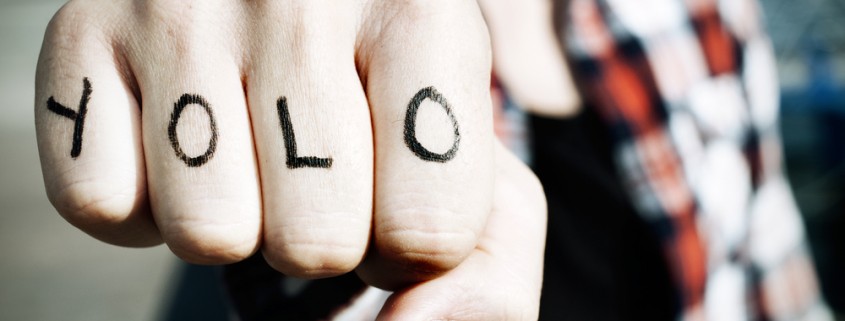Yielding to the “YOLO” Millennial Consumers
“Millennials” has almost become an intimidating word, an uncomfortable and bewildering discussion topic. Highly tech-savvy and driven by an elusive, simultaneous “YOLO” lust for both individuality and social media acceptance, marketing has never before been so radically forced to shift gears and juggle so many things at once. An utter dependence on being “connected”has created a strong, incoming climate that is placing the innovative on a pedestal above the powerful. Brand values now come before brand labels. Being “different” is heralded as a higher truth, being “the biggest” no longer impresses.
Take Marriott Hotel’s new strategy that sums it up the best, turning their tried-and-true business model upside-down to accommodate.

Image from Forbes’ “Inside the Millennial Mind: The Do’s & Don’ts of Marketing to this Powerful Generation”: http://www.forbes.com/sites/patrickspenner/2014/04/16/inside-the-millennial-mind-the-dos-donts-of-marketing-to-this-powerful-generation-3/2/
What worked with the baby-boomers—a flawlessly repeated formula of perfect execution and predictability—is exactly what is leading younger consumers to distance themselves from large hotel chains. Traveling abroad 23% more than the preceding generation, millennials are driven by a need for unique experiences and spontaneity. As freelance market consulting agency K-Hole explains in Fragmoretation, “future growth potential lies in tapping consumers’ desire to realize their individuality”.
But this isn’t exactly a pivotal realization. It’s a fundamental testament, an understanding of how to attract the most elusive breed of consumers ever.
Marriott proceeded to become what everyone thought they weren’t. Staff and local entrepreneurs pitched ideas to the marketing team spearheading the campaign, racing for a $50,000 reward that would turn the winning ideas into innovative realities. What resulted was blank rooftops being turned into pop-up bars, edgy restaurants that challenged negative connotations of hotel food, and ideas locally crowd-sourced through Facebook to creatively utilize empty spaces.

Image from Forbes’ “Inside the Millennial Mind: The Do’s & Don’ts of Marketing to this Powerful Generation”: http://www.forbes.com/sites/patrickspenner/2014/04/16/inside-the-millennial-mind-the-dos-donts-of-marketing-to-this-powerful-generation-3/2/
A yearning for such experiences is mirrored in other hugely successful marketing campaigns that targeted this young demographic. It’s the backbone philosophy behind Bud Light’s #Upforwhatever campaign, where a Superbowl TV commercial had an unsuspecting bar-goer hurled into a limo to play ping pong with Arnold Schwarzenegger. It’s the explanation behind Shake Shack CEO Danny Meyer telling his staff “The bigger we get, the smaller we need to act”. It’s why customizable fast-casual dining like Chipotle has become the go-to, it’s why Airbnb is exploding in popularity, and it’s why Whole Foods sometimes struggles.
The millennials are fundamentally built around individuality, trading pragmatism and familiarity for sheer spontaneity and labels that go beyond “the customer”. Millennials want to know they are contributing to a unique brand philosophy and are being welcomed by a brand’s personality, constantly looking for innovative ways to actively and emotionally engage with their choices as consumers. They are, after all, an audience that is perpetually plugged-in and stimulated.
In essence, shifting currents in consumer loyalty mean a name in itself isn’t enough to drive young people anymore. It’s what’s in the name that counts.




